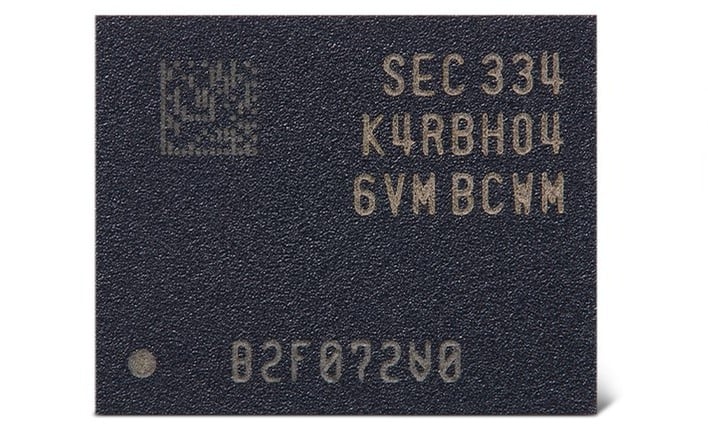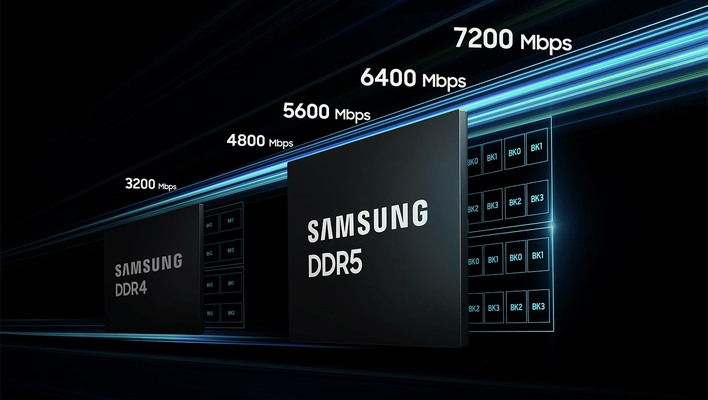Samsung Develops 32Gb DDR5 Chips That Will Enable Massive 1TB DRAM Modules

The new DDR5 packages will allow Samsung to make 128-gigabyte DIMMs without having to stack RAM with through-silicon vias (TSVs). This will result in much cheaper manufacturing costs as well as a small reduction in power consumption—about 10%, according to Samsung. The new 128-gigabyte DIMMs should work on typical desktop machines, which means you could stack half a terabyte of RAM in a Ryzen or Core system.
There's no mention of the speed of the new ICs, but that's somewhat to be expected; the focus for these parts is clearly on capacity. Most of Samsung's extant DDR5 DRAM ICs will do 6400 MT/s or better, which is already well faster than anything officially supported in module form by typical Intel or AMD systems.
Top and above images: Samsung
What about those 1TB modules, though? Well, Samsung already makes 512-GB DDR5 modules, actually. They're RDIMMs, of course, so you can't use them in your Wintendo. Doing the math, the double-density DRAM chips will allow the company to double the capacity of those same modules, producing 1TB DDR5 RDIMMs. They won't be particularly fast, and they absolutely will not be cheap, but if you desperately need to stick 16 TB of RAM into a single-socket EPYC system, that will in fact be possible.
The Korean company just started production of 16-Gbit DDR5 DRAMs in March, so it will be a bit before these 32-Gbit parts hit mass production. Samsung says that we can expect it by the end of the year, so perhaps next year we'll be recommending paired 16GB as the baseline configuration for new system builds. If you're instead hyped about the ultra-high-density server RAM, well, you probably already know that these things have to be validated, and that takes time.


